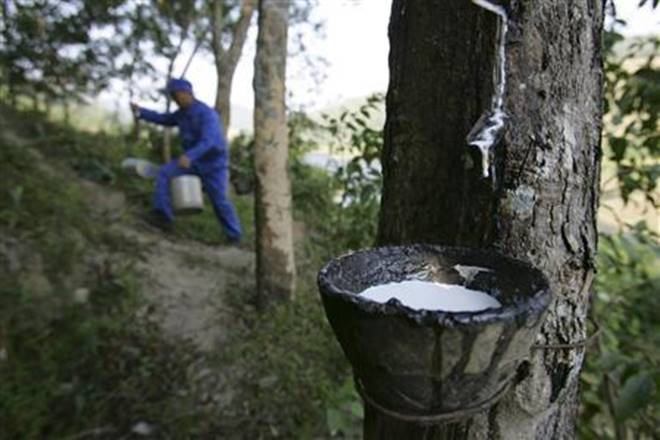The Centre should urgently step in to give an export price incentive of at least R5 per kilo for Indian rubber, leading growers of the commodity have said.

Currently, there is a gap of Rs 30 per kilo between the international price and domestic price of NR. At Rs 160 per kilo, international price has been flying above the domestic price of the premium grade RSS-4 (Ribbed Smoked Sheet), which is Rs 130 per kilo this week. (Reuters)
The Centre should urgently step in to give an export price incentive of at least R5 per kilo for Indian rubber, leading growers of the commodity have said.
Only timely export push can haul up the domestic price, IRGA (Indian Rubber Growers’ Association) has told Parliamentary Standing Committee for Commerce in Kochi, during the hearing sessions on impact of Association of Southeast Asian Nations (ASEAN) pact on plantation sector.
Currently, there is a gap of Rs 30 per kilo between the international price and domestic price of NR. At Rs 160 per kilo, international price has been flying above the domestic price of the premium grade RSS-4 (Ribbed Smoked Sheet), which is Rs 130 per kilo this week.
“Unless the window of export opportunity is opened now, there will not be enough psychological pressure to haul up the domestic price, punched down by excessive NR imports in recent years.
Price-realisation for rubber has been at such negative levels that farmers are quitting tapping, in the peak season. This could hit the crop’s future. We have urged the Parliamentary Committee that announcing an export incentive for NR at this fortnight, as the price-gap is as big as Rs 30, would be the best support measure for the country’s 10 lakh-odd rubber farmers,” IRGA general secretary Sibi Monipally told FE.
At present, the Centre’s MEIS (Merchandise Exports from India Scheme) includes only rubber products. The growers’ body has mooted that the Centre dips from its MEIS pocket to back the farmer in the export of rubber sheets too.
IRGA has also pleaded that, while entering into FTAs (free trade agreements), with other countries, the Centre should safeguard the interest of rubber farmers and MSME sector. “Livelihood clause” should be incorporated in all trade agreements to protect the small and marginal growers.




























